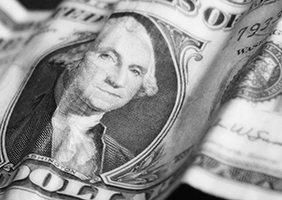Newsroom
Tax deductions not allowed for PPP loans, reiterates IRS
 The IRS last week published a revenue procedure providing a safe harbor for taxpayers to deduct eligible 2020 expenses from this year's taxes under certain circumstances. The agency reiterated that taxpayers who received a paycheck protection program (PPP) loan cannot deduct otherwise tax-deductible expenses if the payment of the expense results in forgiveness of a covered PPP loan.
The IRS last week published a revenue procedure providing a safe harbor for taxpayers to deduct eligible 2020 expenses from this year's taxes under certain circumstances. The agency reiterated that taxpayers who received a paycheck protection program (PPP) loan cannot deduct otherwise tax-deductible expenses if the payment of the expense results in forgiveness of a covered PPP loan.
The new procedure notice allows for a deduction in the 2020 tax year for eligible 2020 expenses if the taxpayer expected the loan to be forgiven and is then denied in whole or in part, or does not apply for loan forgiveness.
However, PPP loan recipients cannot claim a deduction for any otherwise deductible expense if the payment of the expense results in forgiveness because the income is excluded from the gross income of the borrower under the CARES Act. This is true, even if a borrower paid otherwise eligible expenses in 2020 but does not receive loan forgiveness by the end of 2020.
The IRS in May released the notice clarifying the non-deductibility of PPP-covered expenses. It referenced a section of the Internal Revenue Code (IRC) that prevents double tax benefits. As forgiveness of PPP loans is excluded from the taxpayer's gross income, the IRC disallows any otherwise allowable deduction of expenses that are forgiven to prevent the double tax benefit of the borrower.
Following that notice, a bipartisan group of senators introduced legislation to address the issue and allow small businesses to deduct eligible expenses that were paid for by forgivable PPP loans from their taxes.
NAFCU will continue to monitor developments related to the PPP.
Share This
Related Resources
The Ride-Share Conundrum: An Exception to an Exception
Business Lending
Blog Post
Taking Care of Business: Recent Developments in Commercial Lending
Business Lending
Blog Post
Marijuana Banking Issue Brief
Whitepapers
Loan Maturity Issue Brief
Whitepapers
Get daily updates.
Subscribe to NAFCU today.
